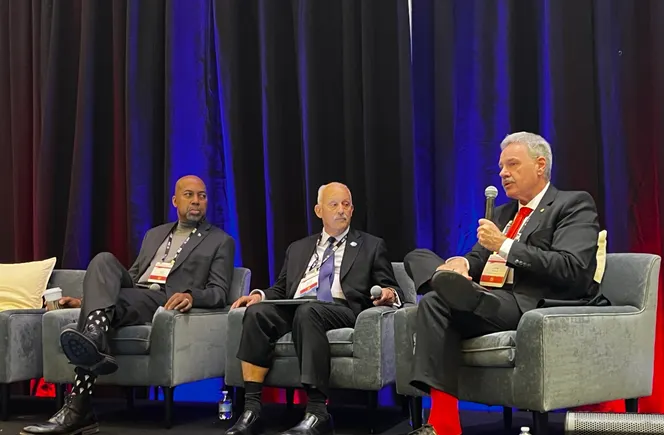Recently, The PIE News published the perspective of an enrolment manager in US higher education regarding agents and their exceedingly poor experience. The account was sadly unattributed, and therefore it is difficult to effectively evaluate the clearly problematic circumstances.
That said, this is a perspective that many in higher education have heard before. The National Association for College Admission Counseling (NACAC) indicates that the majority of its member institutions currently do not work with agents because of ethical concerns.
While there are many excellent agents, I have no doubt there are also unethical companies – the so-called “bad actors”. Inevitably, there is a continuum of commitment, quality, and service, as with any business sector. It is therefore necessary to step back and consider why universities, parents and prospective students utilise agents in the first place, and what the responsibilities of the university sector are when considering whether to work with agents.
Today, I work for Acumen, a leading international education consultancy, having spent 28 years in US higher education, 15 as an SIO. I have worked with large agencies and trust this perspective is useful when putting the recent PIE article into context.
Let’s begin with the parents and students and their concerns. In contemplating any overseas institution, the family is making a substantial financial commitment, as even after scholarships the cost of attendance for any four-year baccalaureate in the US can easily reach $120,000 and range to $250,000.
For all but the financial elite, international studies represent the investment of a lifetime and this becomes a deeply transactional decision. This proposition, which may assume post-graduate Optional Practical Training, explains why most international students are laser focused on their studies, and see a US degree as a stepping stone to a career that may be unattainable otherwise.
Most families will survey their options using world rankings – but even here, they must be skeptical
While these families look at many countries, the US is still considered by many to be the best academic proposition. But where do they start to gather information?
Most families will survey their options using world rankings – but even here, they must be skeptical. For example, there are 29 US universities ranked higher than the leading ranked Indian institution in the QS 2025 rankings. These rankings lead to all kinds of erroneous assumptions, including the idea that US private universities are automatically better than publics, that community colleges aren’t ‘worth’ considering and that all reputable institutions are expensive. In part, this explains why, according to Open Doors, 25% of all international students study at just 20 highly ranked universities in the United States.
We should also consider the family rarely sees university representatives. Unless that institution has the significant benefit of having 24/7 in-country representation by a trained individual working exclusively for the university, you are likely using an occasional ‘fly in/fly out’ model, bringing admissions staff once or twice a year. Given the need to justify that cost, most college recruiters either sign up for a prescribed agenda of recruitment fairs and school visits, or follow a well-worn path of prior visits that maintains a network of relationships.
Both are good strategies given the very occasional nature of the work, but inevitably universities will concentrate efforts in the big cosmopolitan cities. This is a problem. The 2011 census notes 46 Indian cities with over one million people but when was the last time your international recruiters visited Thane, Vadodara, Nashik, Bhopal, Nagpur or Ludhiana?
In this context, little wonder parents and students look elsewhere for advice. They want to have the trust of someone they can meet in-person on multiple occasions, who appears to be successful, and who speaks with confidence about future academic options. This isn’t a socio-cultural anomaly, it is a cultural norm.
The danger of the recent PIE piece is that it ignores these complicated and culturally located processes. It dismisses agencies, paying no attention to how most parents and students try to understand the complex and confusing behemoth that is US higher education.
There are alternatives to agencies such as international education consultancies supporting in-country representation, but US higher education must strategically plan for the perspectives of the international student and their families in this process. There is no room for an attitude of American exceptionality in an extraordinarily competitive global environment.
So what is to be done? US institutions have, in simple terms, three choices when considering working with agents:
Universities can choose not to work with agents, electing to reuse domestic admissions processes, hopefully with some adaptions, and sending a small team of recruiters overseas sporadically. This is an expensive proposition but given the tuition premium of international students, many universities are happy to utilise this ‘fly in – fly out’ model and maintain control of the process. Other universities recognising these pitfalls choose to work with international education consultancies to employ in-country representatives to market and recruit directly from specific countries on the basis of service, not commission.
Universities can choose to work with agents but have those agreements monitored. Those same international education consultancies can, precisely because they are not agencies, educate, the advise and offer quality oversight for the agent agreements that universities hold. They can be the eyes and ears of the university in-country, and train the agencies ensuring they are thoroughly educated on the institutional proposition.
Finally, universities can choose to work with agencies. Given the central role that agents play in many family decisions, and the fact that large agencies can recruit significant numbers of students while organising the recruitment/application process, working with agents can be an important part of the admissions strategy. Quality assurance and ethical behaviour then become central to the development of trust. In this regard, I strongly encourage universities to work with agencies that are recognised by either AIRC or ICEF.
Should universities decide to work with agents, as many do, it becomes critical that admissions personnel also maintain their responsibility back on campus. The university is accountable for the careful oversight of the agent contract – particularly as the large consolidators that utilise a sub-agency model have sophisticated business plans.
Simply put, universities must take the responsibility of oversight seriously, or ask a consultancy to do so
Therefore universities must:
Understand, indeed dictate, how the brand is represented in the marketplace.
Conduct due diligence that includes speaking with other universities represented by the agent, well beyond the references offered.
Appreciate the full cost of the commission, whereby agent payments may be 10-20% of first year tuition, and sometimes feature additional payments beyond the first year.
Work closely with the student and academic affairs leadership to ensure international student success is prioritized across the campus community. Any institutional failure to fully commit, such as inadequate turnaround times, or a lack of current marketing materials will tarnish your global reputation quickly.
Understand that agents do not control market forces and cannot guarantee meeting a projected admissions target – or not without facing a potential reallocation of students from other universities to do so. This can be problematic in a ‘down’ year and can result in an ethical dilemma for both the agents and the university. Be sure you complete careful due diligence when agreeing to the business model.
Simply put, universities must take the responsibility of oversight seriously, or ask a consultancy to do so. Procurement processes must avoid exclusivity clauses and lengthy five-to-10-year contracts (or even longer). Mid/senior-level admissions staff must meet regularly with their key points of contact at each agency, receive updates and monitor mutually agreed upon goals frequently. Your university must be prepared to use additional resources such as yield trips, paid agent visits to campus to learn your differentiated student experience, and specific marketing strategies to support the recruitment success of the agents.
There is considerable evidence that well-maintained agency relationships can be an important part of the overarching international student enrolment management strategy alongside direct institutional recruitment and effective educational consultancy. However, agents must not be simply left alone to fulfil headcount goals without a clear understanding of accountability and an intentional and constant oversight by appropriate university administrators. Failure to do so risks leaving the university exposed, as described in the recent PIE article, and ultimately reflects poorly on the university planning and practice.




























